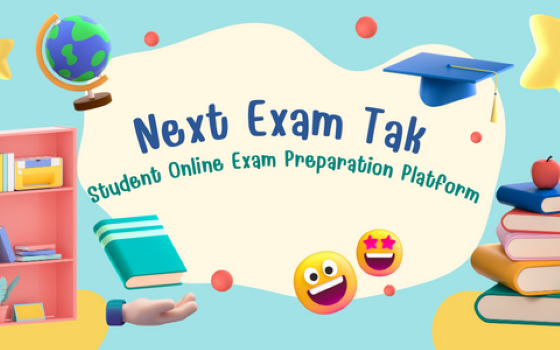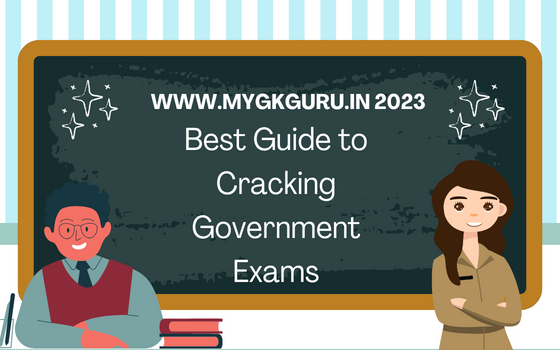The amount of homework, projects, and assignments, Self Study for exams, catching up on extra reading, hobbies, sports, and socializing can make it feel like a student’s life is a never-ending race against time. You are not alone if you believe that there simply aren’t enough hours in the day to get everything done. Looking at the larger picture is the key to overcoming the nagging feeling that you are not accomplishing enough.
Every week, you have 168 hours at your disposal. Making the most of every minute is essential to living a balanced existence. Instead of spending every waking hour glued to your books, the goal of self-study is to maximize your learning time so you may achieve high marks while still leading a normal life.
Change up the ways you learn
It might get monotonous and detrimental to your productivity to stare at the same textbooks for hours on end, day after day. According to studies, various forms of media can stimulate various parts of the brain, and increased brain activity is linked to more effective learning (Chaudhary, 2020). There are plenty of resources available to learn from in our technologically advanced day.
By changing things up a bit, your productivity might increase. Refer to video tutorials, online resources, and digital books in addition to reading your textbooks and class notes to get the same material from some sources. This will increase your ability to retain information while also keeping your mind sharp and focused.
Switch Between Topics
Nobody would be motivated to undertake anything that seems dull and uninteresting (ER, 2020). At least five to six disciplines are required for every course. Studying two or three different subjects each day instead of just one helps one become more effective. For instance, it is preferable to study a little bit of any two or three courses every day as opposed to allocating one day of the week to each subject if your course load includes math, social science, science, computers, English, and Hindi. The finest combinations for increasing productivity include a variety of topics.
For instance, you could combine social science or English instead of studying math and science together. In this approach, your brain has a higher chance of integrating the knowledge you have learned and you are less likely to confuse information you have learned from various topics. You can even hire Assignment Writer UK to help you out with the topic.
Refrain from Multitasking
The idea that multitasking might help you accomplish more in less time is a widespread one. Numerous studies have been conducted to examine the impacts of multitasking, and the results are clear: trying to juggle too many balls at once only serves to increase distraction and decrease productivity. Concentrating on a single activity at a time is the key to increasing the effectiveness of self-study sessions. Therefore, it’s crucial to fight the impulse to study when you’re eating, watching TV, texting pals, or browsing social media.
Having a secondary device dedicated to accessing e-learning apps and study materials is advised if you utilize the internet to access your studies. If you can’t do that, make it a point to temporarily disable your phone’s notifications or put it in silent mode so that you won’t be disturbed by the incessant beeps and alarms. Avoid having numerous tabs open on your computer if you’re utilizing one. Students also go for services like pay someone to do my assignment UK.
Develop the Habit of Taking Handwritten Notes
Taking notes by hand is the most effective technique to give your brain time to digest and assimilate the material you are learning while studying. Yes, you already have textbook lessons and classroom notes to assist you to learn various topics and concepts, but the act of absorbing information and then rephrasing it in your own words improves concept clarity and understanding. By doing so, you will avoid mechanically cramming information without giving it any thought.
Also read:- Most Important Chapters for JEE Mains 2023
Regular Self study-Evaluation
Self-assessment has been shown to increase academic success. You have no way of knowing how much of your textbooks and class notes you have absorbed and retained if you continue to read them passively. Do not wait until examinations or finals to test your knowledge. Make an effort to test your knowledge by taking short quizzes, model answers, and practice tests. This will help you assess your development realistically and pinpoint your areas of weakness. As a result, you can adjust your self-study plan to focus on the topics and courses in which you are falling behind.
Read aloud
Your ability to learn can be greatly enhanced by reading aloud. When you read aloud any text, you hear it in addition to seeing it. This keeps your thoughts from straying and improves your ability to concentrate. When reading aloud, however, you are only able to see the text, which increases the likelihood that you may lose track of what you are thinking. Of course, reading out every word from a chapter can be a strenuous and time-consuming task. To get the most out of this approach, when a topic is being taught in class, underline or highlight the main parts and just read these points aloud when reviewing the material at home.
Take Breaks Frequently
Although it may seem like the best approach to do more in less time, locking yourself in your room until you have completed all the duties set for the day is counterproductive. On the other hand, regular breaks can improve concentration and productivity. Instead of trying to study for six hours at once, break it up into shorter sessions of 40 to 60 minutes. Take a 5- to 10-minute pause after each session to stretch out, sip some water, eat a brief snack, or simply chat with someone. To remember to take a break and continue studying as planned, it is a good idea to set an alarm or stopwatch.
If you accomplish your daily goals, treat yourself to an enjoyable, relaxing activity at the end of the day as a reward for a job well done. This will encourage you to keep going and give you a head start the next day.
References
Arushi Chaudhary (2020). 7 Smart Tips Make Self Study More Productive. https://www.kopykitab.com/blog/7-smart-tips-make-self-study-more-productive/
ER (2020). How to Make Progress on Your Goals When You Feel Unmotivated? https://eazyresearch.com/blog/how-to-make-progress-on-your-goals-when-you-feel-unmotivated/







